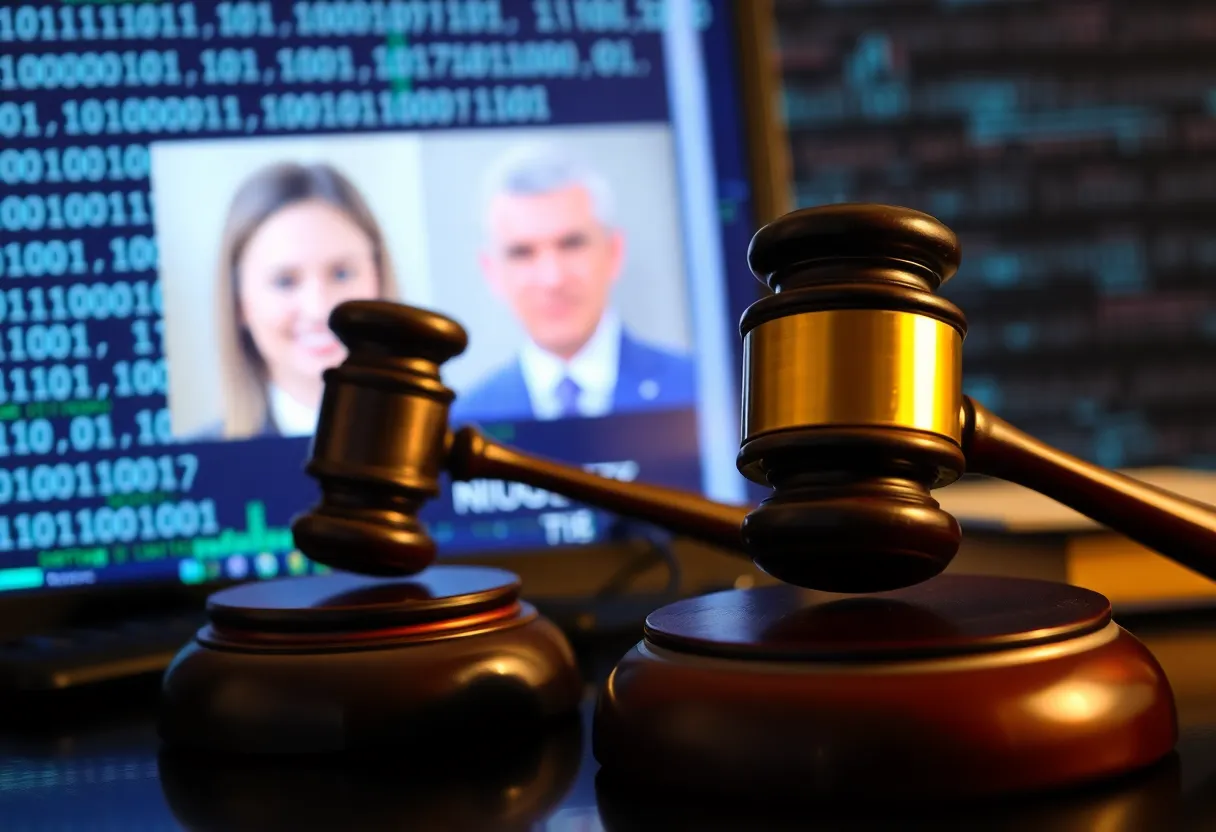News Summary
On July 7, 2025, Pennsylvania Governor Josh Shapiro signed Senate Bill 649 into law, making nonconsensual digital impersonation a criminal offense. The legislation, which defines deepfakes and sets penalties for their misuse, received unanimous bipartisan support. This law aims to protect citizens from fraud and deception using deepfake technology. In addition, Pennsylvania has passed other measures to regulate AI usage in advertisements, especially those which may mislead voters during elections, further establishing the state’s role in AI regulation.
Pennsylvania has taken a significant step to combat the rising concerns associated with deepfake technology. On July 7, 2025, Governor Josh Shapiro signed Senate Bill 649 into law, making nonconsensual digital impersonation a criminal offense. This new law defines deepfakes, which are digital forgeries, and establishes specific penalties for their misuse. Under the new legislation, nonconsensual digital impersonation is classified as a first-degree misdemeanor, while utilizing deepfakes with fraudulent intent can lead to charges of a third-degree felony.
The passage of Senate Bill 649 received strong support, achieving unanimous bipartisan approval in the Pennsylvania State Senate, along with overwhelming backing from the House of Representatives. This legislative move is part of a broader effort to enhance accountability for individuals exploiting artificial intelligence to commit fraud and deceive residents of Pennsylvania.
Prior to the enactment of SB 649, Pennsylvania had already taken steps to address the issue of deepfakes with the introduction of Senate Bill 1213 in October 2024. That legislation specifically banned deepfake pornography, resulting in the state’s first AI-related sexual abuse charges. The ongoing rise in deepfake usage has led to more than 38 pieces of legislation being proposed across 18 states in 2025, alongside 80 laws enacted throughout the United States in 2024, focused on regulating this technology, with an additional 15 laws passed in 2023.
Background on Deepfake Technology and Legislative Response
The emergence of deepfake technology has raised significant concerns, particularly in the realms of politics and social media. With high-profile incidents of malicious deepfakes reported, including robocalls impersonating public officials and misleading advertisements, the need for regulatory frameworks has become increasingly evident. Recognizing the potential risks associated with such technology, legislators in Pennsylvania are also considering additional measures. For instance, a recent bill passed by the Pennsylvania House of Representatives mandates that advertisements utilizing AI deepfakes must disclose their inauthentic nature. This initiative aims to help voters distinguish between real and fake content during election campaigns.
If implemented, House Bill 811 could introduce civil penalties for any advertisements failing to disclose the use of deepfakes within 90 days leading up to an election. Violators could face fines reaching $15,000 per day for municipal offices and as high as $250,000 per day for congressional races.
Addressing Vulnerability and Protecting Consumers
The legal frameworks being established seek to protect not only the general public but also particularly vulnerable populations, such as older residents, who have reported increased instances of financial exploitation related to deepfake technology. SB 649 is designed to hold individuals accountable for digital deception and create deterrents against such behavior.
In response to the growing threat of financial crimes using AI, the Pennsylvania administration is ramping up initiatives focused on consumer protection. State agencies, including the Department of Banking and Securities, are enhancing their educational and enforcement efforts to better protect residents from the various tactics employed by bad actors leveraging deepfake technology.
Pennsylvania’s Role in AI Regulation
By enacting SB 649, Pennsylvania is positioning itself as a leader in the regulatory landscape surrounding AI technologies. The legislation prioritizes public safety and consumer protection, ensuring that individuals who misuse digital impersonation are held accountable. As deepfake technology continues to evolve, the state aims to stay ahead of potential threats, safeguarding its citizens from the malicious implications of digital forgeries.
As the discussions around AI and digital impersonation continue to advance nationwide, Pennsylvania’s proactive approach serves as a significant model for other states addressing similar challenges, reflecting a commitment to fostering a safer environment in the digital age.
Deeper Dive: News & Info About This Topic
- News Nation: Pennsylvania Cracks Down on Deepfakes
- Wikipedia: Deepfake
- Inquirer: AI Deepfake Law in Pennsylvania
- Google Search: Pennsylvania Deepfake Law
- MyChesco: Shapiro Signs Law on Deepfake Scams
- Google Scholar: Deepfake Technology Law
- GoErie: AI-Generated Deepfakes in PA Proposals
- Encyclopedia Britannica: Deepfake

Author: STAFF HERE PHILADELPHIA WRITER
The PHILADELPHIA STAFF WRITER represents the experienced team at HEREPhiladelphia.com, your go-to source for actionable local news and information in Philadelphia, Philadelphia County, and beyond. Specializing in "news you can use," we cover essential topics like product reviews for personal and business needs, local business directories, politics, real estate trends, neighborhood insights, and state news affecting the area—with deep expertise drawn from years of dedicated reporting and strong community input, including local press releases and business updates. We deliver top reporting on high-value events such as Mummers Parade, Philadelphia Flower Show, and Thanksgiving Day Parade. Our coverage extends to key organizations like the Greater Philadelphia Chamber of Commerce and United Way of Greater Philadelphia, plus leading businesses in telecommunications, food services, and healthcare that power the local economy such as Comcast, Aramark, and Children's Hospital of Philadelphia. As part of the broader HERE network, we provide comprehensive, credible insights into Pennsylvania's dynamic landscape.





